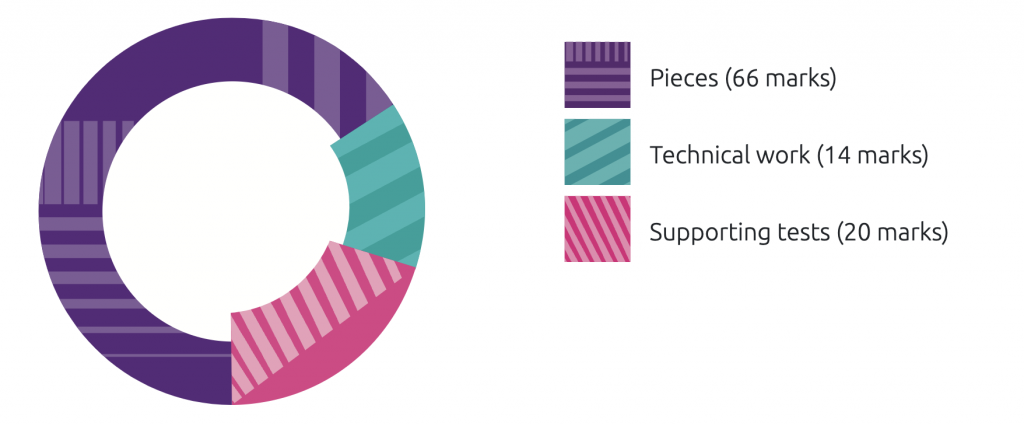Exam Detail
Each exam has three components: pieces, technical work and supporting tests, with different requirements depending on the grade.
All Trinity College London examiners are professional musicians, and they take special care to make candidates feel relaxed in the exam room, creating a positive environment for you to demonstrate your talents to your full potential.

Pieces
Candidates perform three or four pieces (depending on the instrument and the grade) from lists featuring a wide range of styles and genres. Supporting a range of teaching approaches is at the heart of our syllabuses, with many pieces suitable for group and whole-class programmes.
Technical work
Developing a strong technical foundation is crucial to playing with confidence and enjoyment. We have developed technical work that is intuitive and relevant to your specific instrument, and which will build confidence in your technique.
We recognise that learners have different strengths and so candidates can choose from a number of different options for their technical work. These options include scales and arpeggios, specially written studies (such as lip flexibility exercises for brass, or rudiments for drum kit) and orchestral extracts (at Grades 6-8 for certain instruments).
Supporting tests
Our exams aim to develop holistic musicians, and supporting tests play a key role. Candidates choose two supporting tests from a selection including sight reading, aural, musical knowledge and improvising.
Aural tests are based around a single musical extract played at the piano by the examiner, with candidates asked to describe various features of the music such as dynamics, articulation, texture and style. Candidates are not required to sing.
This test assesses candidates’ ability to perform a previously unseen musical extract, at a level approximately two grades lower than the exam being taken. Sight reading is an option up to and including Grade 5, but compulsory from Grade 6 onwards.
This test assesses candidates’ ability to improvise fluently, coherently and creatively in response to a musical stimulus. Candidates can choose between three types of improvisation stimulus: stylistic, harmonic or motivic. Drum kit and untuned percussion (snare drum and timpani) candidates can take a rhythmic improvisation test.
This test encourages learners to understand the wider musical context of the pieces they play, as well as their knowledge of notation and their instrument. Musical knowledge is available up to and including Grade 5 and the parameters are published in each graded syllabus.
Assessment & Recognition
How Exams Are Marked
Our examiners assess the whole performance when awarding marks and giving feedback. For pieces, this not only includes fluency and accuracy, and technical facility, but also communication and interpretation. They are marked out of 100. 60 marks to pass, 75 for a merit and 87 for a distinction.
Recognition
Trinity College London is an awarding body recognised by the Office of Qualifications and Examinations Regulation (Ofqual) in England and Northern Ireland, and by Qualifications Wales. Trinity’s qualifications are regulated by these authorities within the Regulated Qualifications Framework (RQF). Various arrangements are in place with government educational authorities worldwide. Trinity exams are aligned to the European Qualifications Framework (EQF).
UCAS Points
Grades 6–8 are eligible for UCAS (Universities and Colleges Admissions Service) points for those applying to UK colleges and universities.

